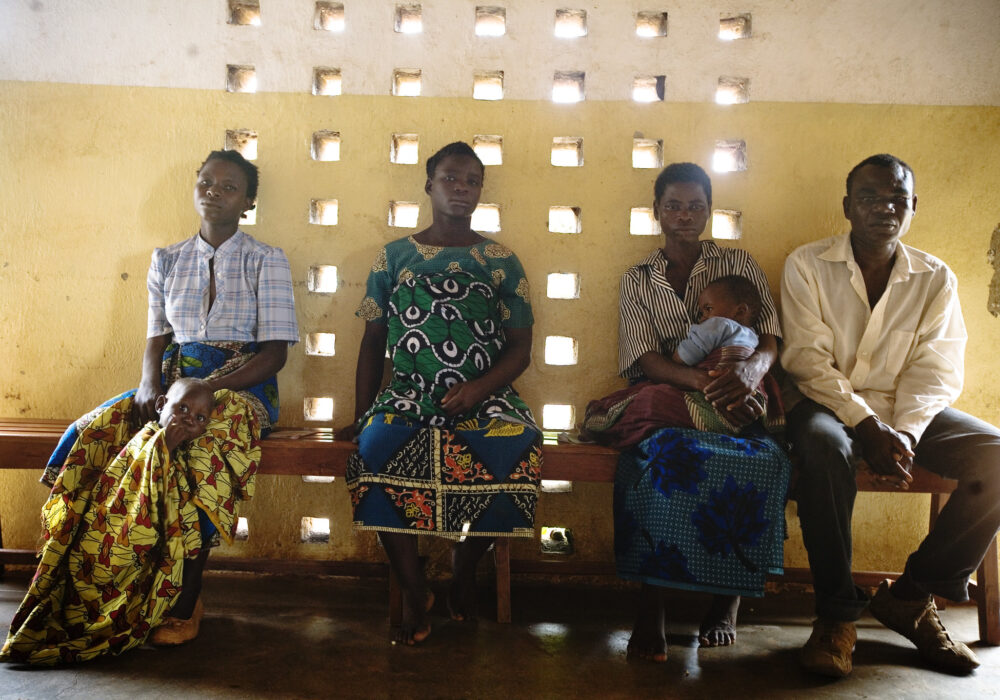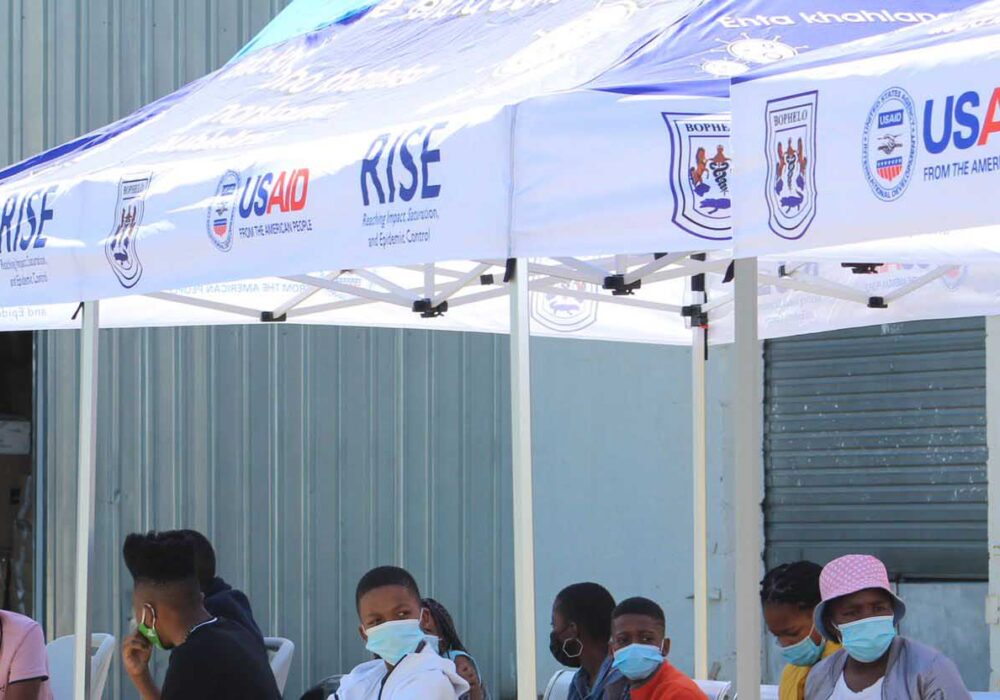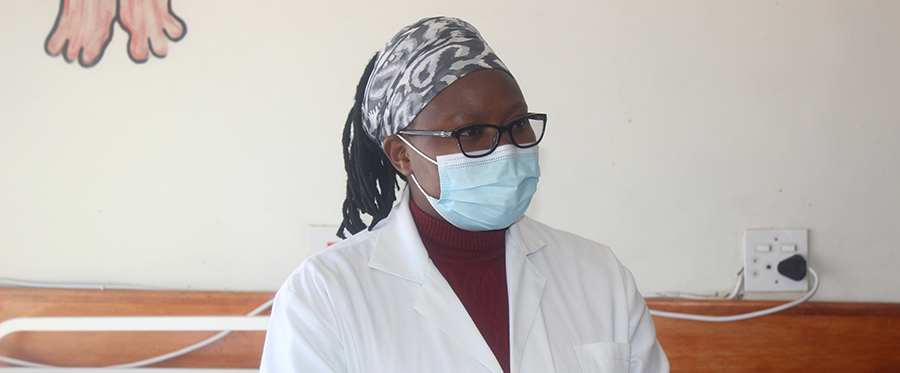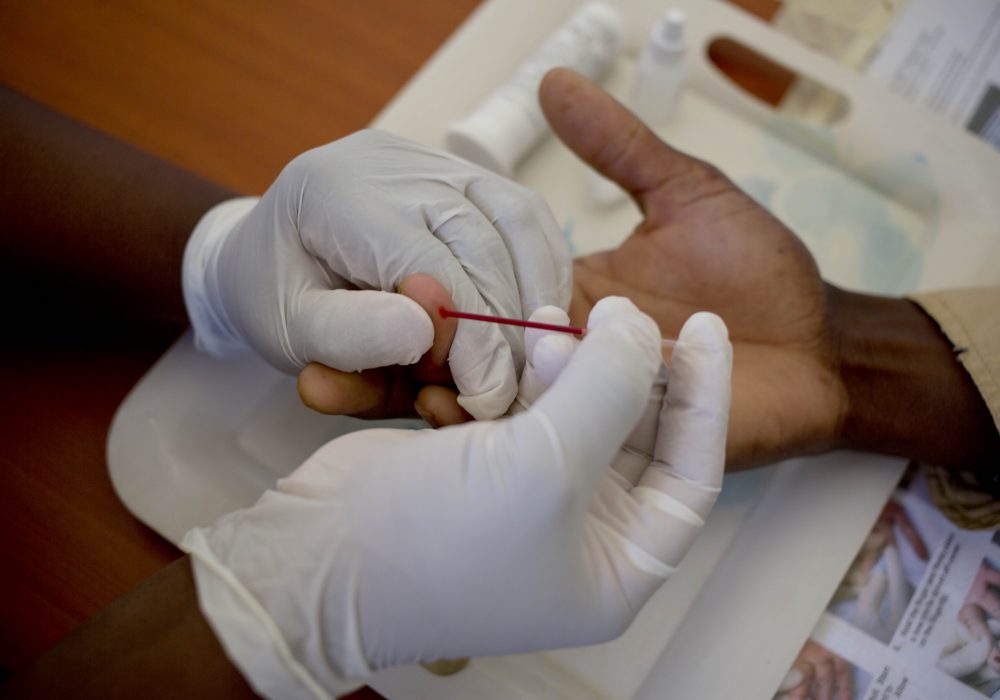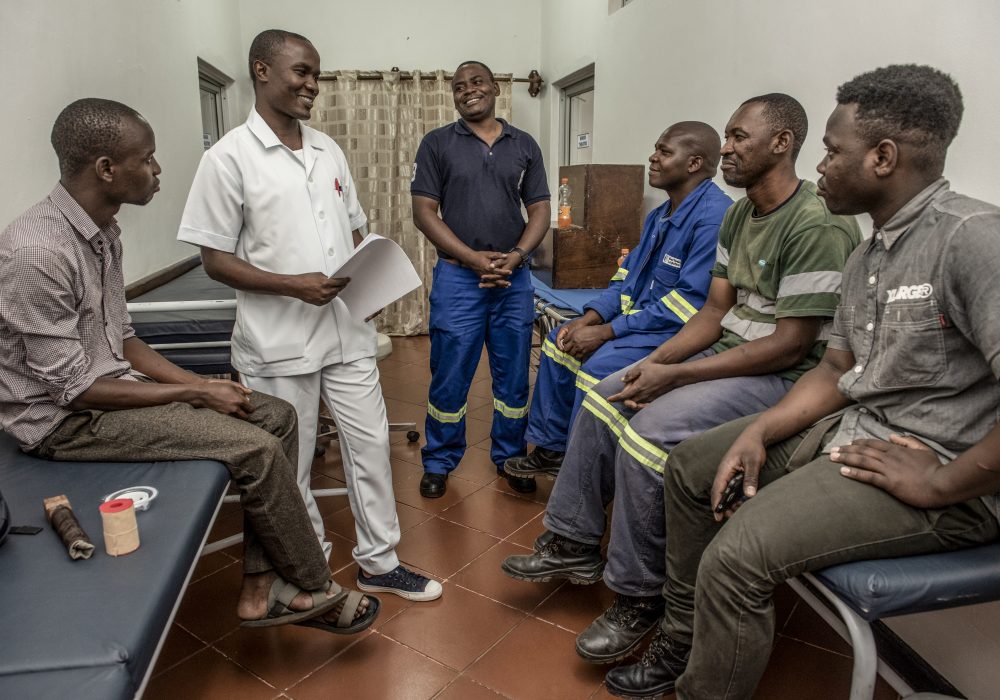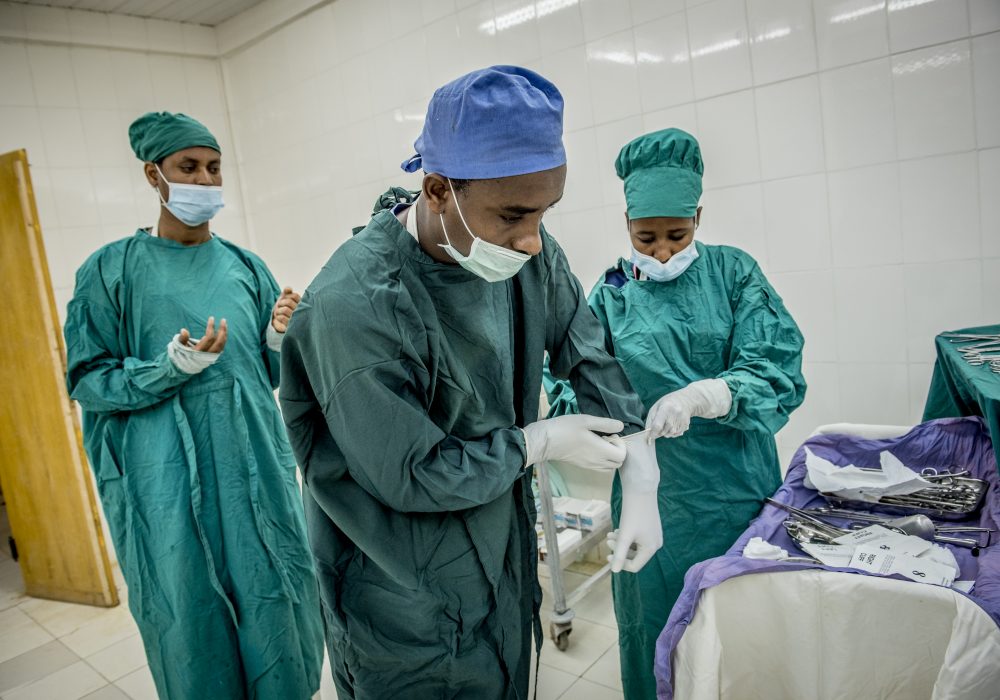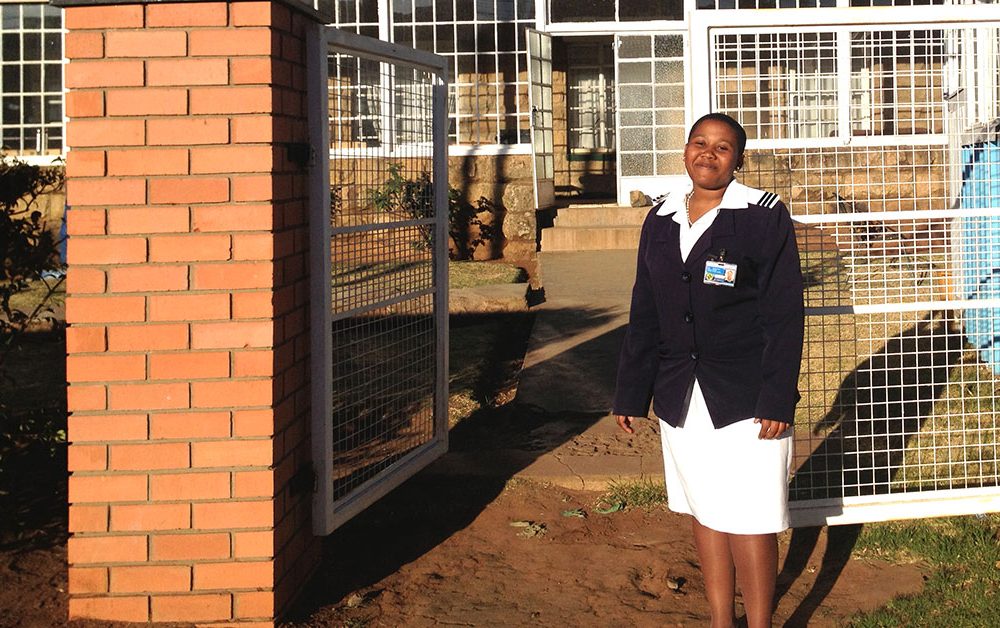Lesotho


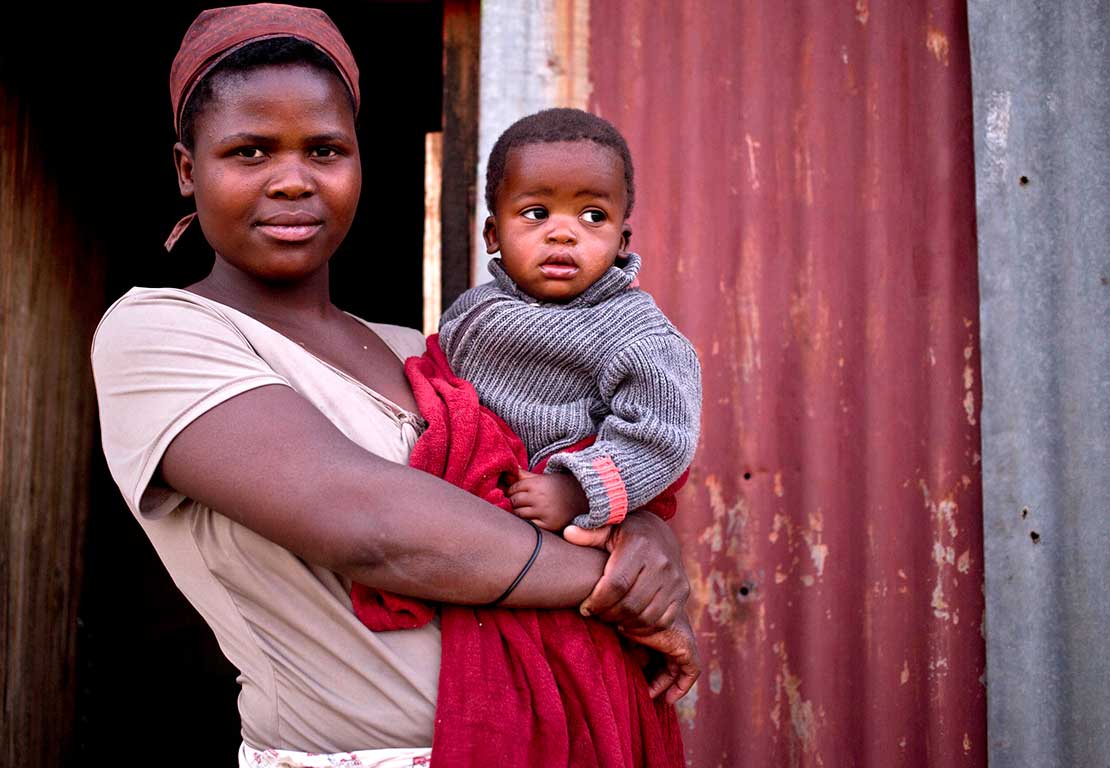
Country Contact
Oluwakemi Adeleke, Acting Country Director
Tel. 266 5250 5401/2/3
House Ntenako, Israeli Park
Matukeng Road, MASOWE 3
Maseru 100, Lesotho
Current and Recent Donors
European and Developing Countries Clinical Trials Partnership
Global Fund/Ministry of Finance (Project Management Unit)
USAID
Equity in health has been a cornerstone of Jhpiego’s work since 2008.
- More than 103,000 Basotho have learned their HIV status through Jhpiego-led initiatives, and over 256,000 men have received voluntary medical male circumcision services, thereby benefiting from this procedure’s protective effect against HIV infection.
- Jhpiego pioneered the first-ever integrated, comprehensive, nurse-led male clinic, which received over 18,000 patient visits in the first two years. The clinic, which provides client-centered, male-friendly health services and improves male health-seeking behaviors, has been endorsed by the Ministry of Health and is being replicated at 13 primary health care clinics.
- Jhpiego supported the Lesotho Nursing Council to introduce task shifting for nurse practitioners to establish and implement a sustainable, nurse-led HIV/AIDS response. This includes nurse-initiated and nurse-managed antiretroviral therapy services for people living with HIV, thereby reducing the burden on doctors so they can focus on more advanced care needs.
- Jhpiego is supporting the Ministry of Health to provide pre-exposure prophylaxis and other combination prevention services to more than 59,000 people at high risk of contracting HIV, primarily adolescent girls and young women.
Our Technical Areas in Lesotho
Our Work in Lesotho
Reaching Impact, Saturation, and Epidemic Control (RISE)
RISE is a five-year global project funded by the U.S. President’s Emergency Plan for AIDS Relief (PEPFAR) and the U.S. Agency for International Development (USAID). RISE works with countries to achieve a shared vision of attaining and maintaining epidemic control, with stronger local partners capable of managing and achieving results through sustainable, self-reliant and resilient health systems by 2024. RISE’s contributions to this work will lead to fewer new HIV infections, decreased HIV-related morbidity and mortality, and increased quality of life for people living with HIV. With USAID PEPFAR investments, RISE supports countries to achieve and maintain epidemic control by providing strategic technical assistance and direct service delivery to improve HIV prevention, case finding, treatment programming and viral load suppression. The primary objectives of the RISE project are to: 1) attain and maintain HIV epidemic control among at-risk adult men, women and priority populations; 2) attain and maintain HIV epidemic control among key populations; 3) strengthen health systems including improved program management, health information systems, human resources for health and financial systems to ensure attainment and maintenance of epidemic control; and 4) support the transition of direct funding and implementation to capable local partners to meet the PEPFAR goal of 70% of funding to local partners by 2020. The project is led by Jhpiego with the following partners: ICAP at Columbia University, Management Sciences for Health, Anova, BAO Systems, Johns Hopkins University Center for Public Health and Human Rights and Mann Global Health. RISE is currently active in several countries, including Lesotho.
Fighting COVID-19 Under the Reaching Impact, Saturation, and Epidemic Control (RISE) Project
With funding from the U.S. Agency for International Development (USAID), Jhpiego is working in select countries, including Lesotho, to address the COVID-19 pandemic. In line with ministry of health priorities in each country, RISE’s COVID-19 response support may include: assisting in the planning and rollout of national vaccine plans, including ensuring health care workers are prepared to implement and monitor this plan; providing focused and clinically relevant capacity building for clinicians providing COVID-19 case management; strengthening the oxygen ecosystem; and supporting health care workers in oxygen conservation, rationalization and non-invasive respiratory care.
Community and Universal Testing for TB among Contacts
Jhpiego is supporting a study in Lesotho with the goal of increasing TB yield through universal testing as compared to standard TB screening among household and community contacts. Jhpiego’s support includes implementation of the clinical trial, collection of specimens, arranging and supporting training of staff, collection of data and overall capacity development. This work is being conducted under a multi-country study (in Lesotho, South Africa and Tanzania) funded by the European and Developing Countries Clinical Trials Partnership. The multi-country study is led by the Aurum Institute with partners Forschungszentrum Borstel Leibniz Lungenzentrum, National Institute for Medical Research in Tanzania, University College London, Karolinska Institutet and Jhpiego.
Stepping Up Universal Access: A Multi-Sectoral Partnership Response to TB/HIV
With funding from the Global Fund for AIDS, Tuberculosis and Malaria, Jhpiego has been supporting programs for TB and HIV treatment, support and care in Lesotho. Currently under this award, Jhpiego is strengthening health facility-based TB case finding and diagnosis by scaling up a proven quality improvement approach and building the capacity of health care workers in facilities in 10 districts. Interventions include training of private health facilities on essentials of quality improvement, supportive supervision and mentorship, and support for health facility exchange meetings.
Maximizing Options to Advance Informed Choice for HIV Prevention (MOSAIC)
Under this global project, led by FHI360 and funded by the U.S. Agency for International Development (USAID), Jhpiego is leading project implementation in Lesotho. The goal of the MOSAIC project is to ensure that individuals, especially women, can protect themselves from acquiring HIV by accelerating introduction and scale-up of new biomedical prevention products, and by expediting availability, acceptance, uptake and impact of these products.
The people we serve
Country Contact
Oluwakemi Adeleke, Acting Country Director
Tel. 266 5250 5401/2/3
House Ntenako, Israeli Park
Matukeng Road, MASOWE 3
Maseru 100, Lesotho
Current and Recent Donors
European and Developing Countries Clinical Trials Partnership
Global Fund/Ministry of Finance (Project Management Unit)
USAID






